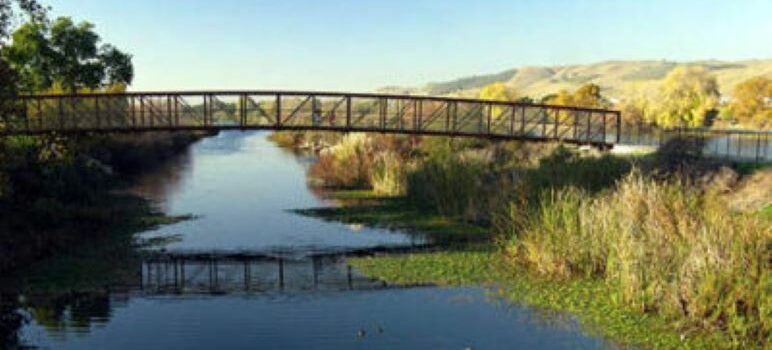Granite Rock Company has agreed to pay $325,000 to settle an environmental protection lawsuit brought by the Santa Clara County District Attorney’s Office.
Granite Rock recycles, manufactures, and distributes aggregate, asphalt, concrete, and other materials which can be harmful to the creek if they contaminate stormwater. The company was accused of allowing stormwater runoff contaminated with heavy metals and high alkalinity to pass into storm drains that lead to Coyote Creek.
“Coyote Creek is a vital watershed in the Santa Clara Valley, and prosecuting stormwater runoff cases shows our commitment to protecting our natural resources,” District Attorney Jeff Rosen said in a statement.
The District Attorney's Office began investigating Granite Rock in 2017, finding contaminated stormwater flowing into the creek without proper filtration or treatment at the Berryessa facility. Further investigation revealed an ineffective treatment system at the Capitol Expressway facility that allowed runoff with high levels of iron to flow into the storm drain.
Upon being contacted by the District Attorney’s Office, Granite Rock took measures to install active water treatment systems at both facilities. As part of the settlement, the company has agreed to a five-year injunction with training, testing, and oversight conditions.
In addition to $250,000 in civil penalties, Granite Rock Company provided $75,000 to Coastal Habitat Education & Environmental Restoration for clean-up projects along Coyote Creek and the Guadalupe River.
This is the county’s third water pollution runoff case against an industrial facility near Coyote Creek in the Berryessa Road area of San Jose, following civil settlements against Pick-N-Pull in 2022 and Silicon Valley Paving in 2021.


If the aim is journalism in the public interest, the follow-up questions for San Jose Inside to tackle would be: 1) “Are $250,000 in civil penalties and $75,000 in contributions to clean up efforts sufficient to mitigate the damage done to the environment by Granite Rock Company’s actions? If not, why not? If not, why aren’t the penalties higher?”; 2) “Will the civil penalties also be used for environmental mitigation? Why or why not?”